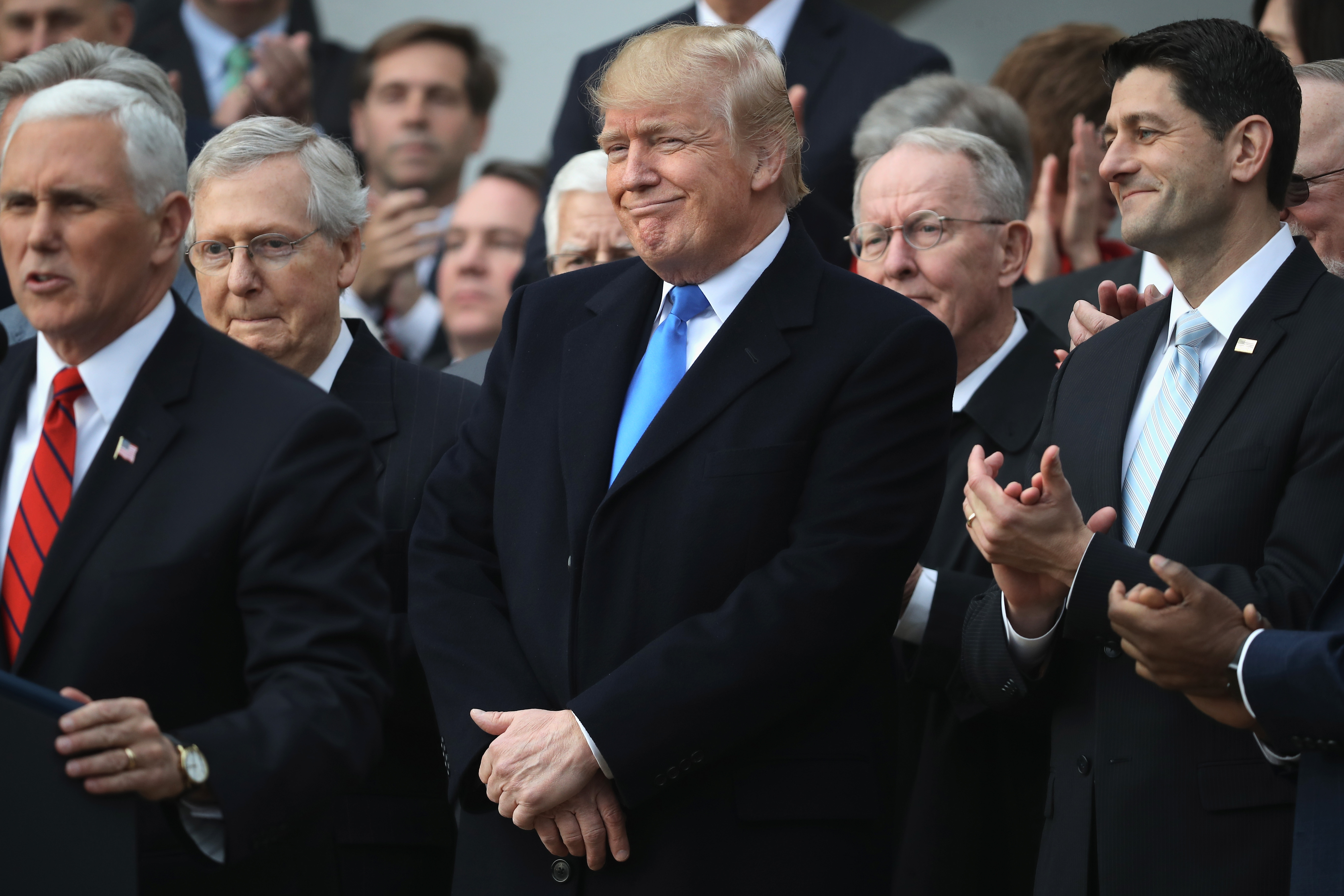Trump probably won't sign the GOP tax bill until next year


A free daily email with the biggest news stories of the day – and the best features from TheWeek.com
You are now subscribed
Your newsletter sign-up was successful
President Trump's big sales pitch for the huge tax overhaul congressional Republicans passed on Wednesday has been consistent for weeks:
But depending on what happens next in Congress, Trump probably won't sign the tax bill into law by Christmas, or even New Year's Day. The reason? If he signs the bill this year, he's starting the clock on $120 billion in automatic spending cuts, including to popular programs like Medicare, under pay-as-you-go rules Congress passed decades ago (and have regularly flouted ever since). Congress can waive the cuts, triggered if lawmakers pass legislation that adds to the national debt — and the GOP tax bill is projected to add $1.46 trillion or more over 10 years — but Democrats may resist letting Republicans off so easily in the spending package that needs to pass by Saturday.
If Trump waits until January to sign the bill, on the other hand, the automatic spending cuts wouldn't kick in until 2019, Ed Lorenzen at the Committee for a Responsible Federal Budget tells CBS News. "That means Congress wouldn't have to do anything to prevent it from taking effect until the end of next year." Trump's top economic adviser, Gary Cohn, said Wednesday that Trump wants to sign the bill as soon as possible. "If we can get Paygo waived in the (spending bill), we will sign the tax bill this year," he said.
The Week
Escape your echo chamber. Get the facts behind the news, plus analysis from multiple perspectives.

Sign up for The Week's Free Newsletters
From our morning news briefing to a weekly Good News Newsletter, get the best of The Week delivered directly to your inbox.
From our morning news briefing to a weekly Good News Newsletter, get the best of The Week delivered directly to your inbox.
Taxpayers won't be affected either way, and their paychecks should reflect the law starting in February. How much of a cut they see will depend on their tax bracket — people making $25,000 or less will keep an average of $60 more next year, according to Tax Policy Center estimates, while the middle class — $49,000 to $86,000 — will get an extra $900 next year and people earning more than $733,000 will get an average boost of $51,000.
A free daily email with the biggest news stories of the day – and the best features from TheWeek.com
Peter has worked as a news and culture writer and editor at The Week since the site's launch in 2008. He covers politics, world affairs, religion and cultural currents. His journalism career began as a copy editor at a financial newswire and has included editorial positions at The New York Times Magazine, Facts on File, and Oregon State University.
